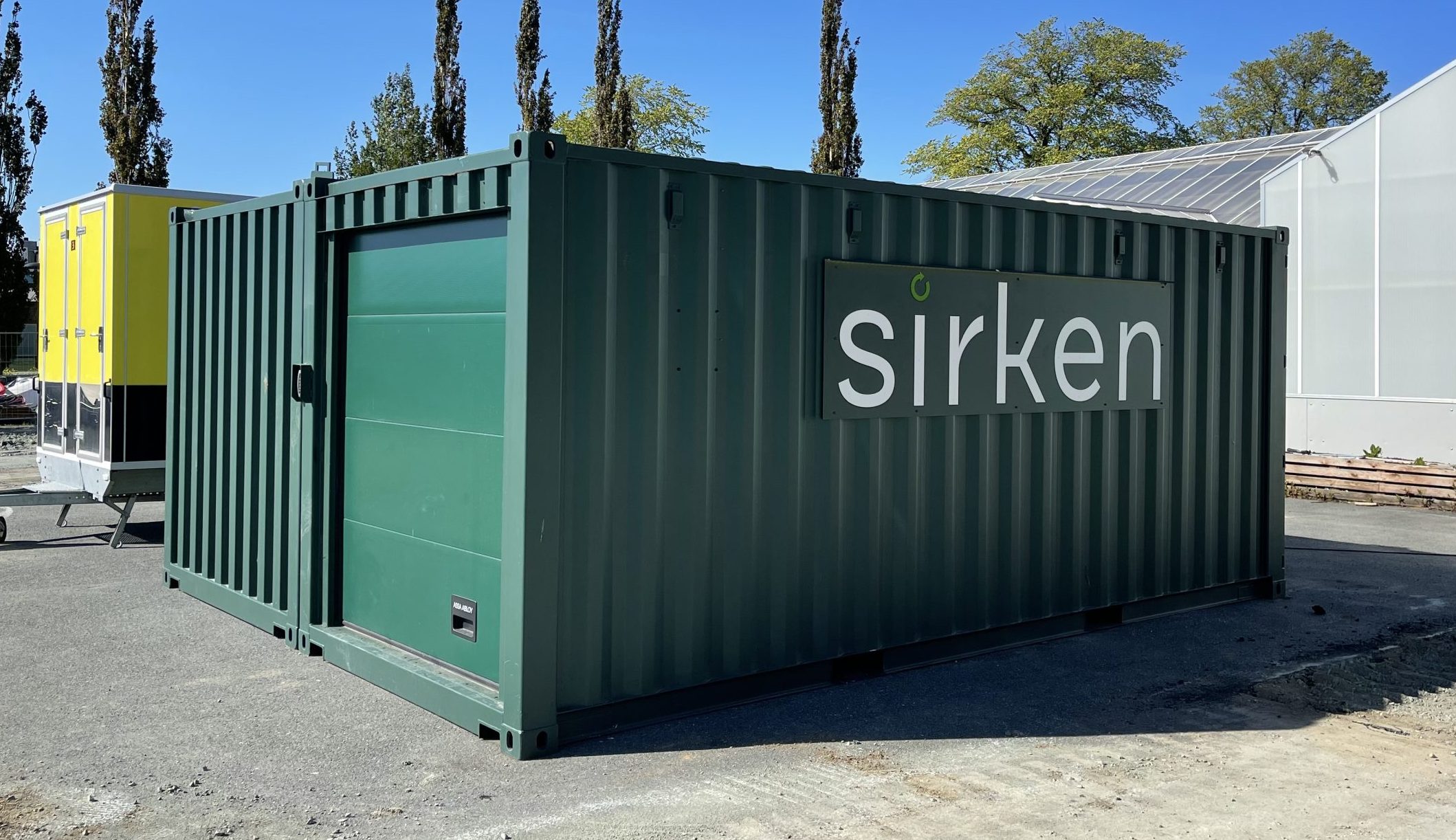Sirken: Enabling circular economy in the construction industry
Change is often synonymous with something scary and difficult. There's something deep within us that resists change, and fear is usually the reason. Fear that it requires large resources and valuable hours. But that's not the reality anymore, and the collaboration between Inlet and Sirken shows how change can be made in a simple, efficient, and profitable way.
It all started with…
Sirken was founded by two entrepreneurs who saw a need for change in the well-established construction and civil engineering industry. The industry is one of the cornerstones of the Norwegian economy, but it also accounts for 40% of global CO2 emissions. Where others saw an environmental villain, Peter and Ingvar saw an enormous opportunity. With a clear problem in sight, Sirken became Norway's first self-service warehouse for surplus materials.
"The construction industry accounts for about 1/3 of all waste in Norway. Much of what is defined as waste is really surplus materials. We realized that and addressed it."
Peter Totland, co-founder of Sirken

Today's industry standard is to dispose of waste by delivering it to waste management. Large amounts of this waste are perfectly usable surplus. But as it stands today, it is more economically profitable for companies to dispose of surplus materials and instead purchase new material when needed.
"There are many costs associated with retaining surplus materials for companies. Everything from transport, storage, handling, and administration," explains the self-proclaimed realist.
And that's where the entrepreneurial duo found their gold mine!
Sirken's self-service warehouse
The founders quickly set to work and decided to create a simple, profitable, and sustainable solution. They developed self-service containers where individuals can purchase surplus materials.
The containers are strategically placed at construction sites so that contractors can easily fill them with surplus materials. They are unmanned, so the customer completes the purchase and collects the goods on their own. In this way, large quantities of high-quality materials that would otherwise be discarded are put to good use. It's simple for the contractor, and simple for the customer!
Thomas Wisur, CEO and co-founder of Inlet, praises Sirken's sustainable business model and points to the solution as a great example of circular thinking.
"Sirken has an exciting business model and stands out as a good example in an industry where even small improvements make a big difference. Sirken's solution represents a huge improvement, and we look forward to seeing the results."
Thomas Wisur, co-founder of Inlet
Collaborating to reach the goal
What started as an idea was quickly realized through a collaboration with Assa Abloy Opening Solutions and Inlet. Inlet made sure that Sirken's own website was connected to the lock system in the containers so that the entire process worked seamlessly.
"It's important for us to help make the solution as simple and intuitive as possible for customers. This increases the likelihood of the containers being used and more surplus materials being reused," says Wisur.
But good collaboration also depends on good communication and quick problem solving. This is something Totland points out as one of Inlet's strengths!
"Inlet is a supplier that stands by you! I remember one Saturday night - around half past ten maybe - when I sent a text message to Wisur. He ended up calling me and solved the problem there and then," concludes Totland.
For us at Inlet, this is testament to the fact that what we do has utility for our customers, and in the long run, society as a whole. By connecting various solutions, we also connect the people behind them. That's where the real value arises.
Are you curious about how Inlet can help automate and simplify your business? Learn more about our automated rental solutions here or contact one of our talented colleagues.
